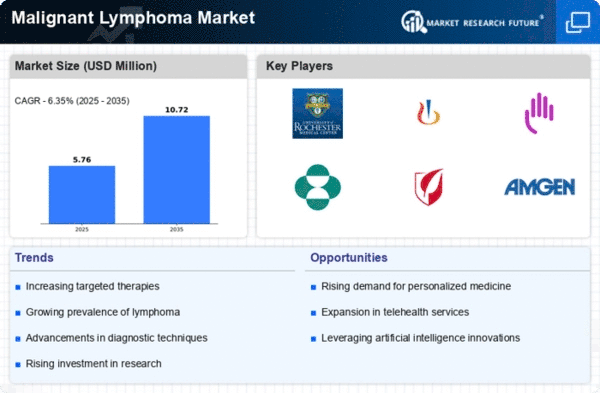Market Analysis
In-depth Analysis of Malignant Lymphoma Market Industry Landscape
The pathological elements of lymphoma are influenced by the variety of lymphoma subtypes. Malignant lymphoma encompasses different subtypes of which Hodgkin lymphoma and non-Hodgkin lymphoma are the most common ones, each having particular manifestations. This complexity condition gets close, thus creating the necessity of personalized therapies designed per lymphoma subtype. The high worldwide occurrence rates of malignant lymphoma contribute to the market elements. Non-Hodgkin lymphoma is quite possibly of the most prevalent hematologic threat. The rising occurrence is attributed to factors, for example, age, invulnerable system problems, and infections, affecting the interest for effective and broadened treatment options. Immunotherapy has arisen as a dominant force in the market elements of malignant lymphoma. Resistant checkpoint inhibitors, CAR-T cell therapy, and monoclonal antibodies, for example, rituximab, have shown significant adequacy in treating lymphomas. The emphasis on saddling the insusceptible system to combat cancer cells is a significant trend forming treatment modalities. The entry of biosimilars into the market impacts elements by introducing cost-effective alternatives to established biologic medications. Biosimilar competition, particularly for monoclonal antibodies like rituximab, contributes to evaluating strategies, potentially expanding accessibility and affordability of lymphoma treatments. Worldwide examination collaborations among pharmaceutical organizations, scholastic institutions, and healthcare organizations assume a vital part in propelling lymphoma treatment options. Collaborative efforts mean to accelerate drug development, conduct clinical trials, and offer insights on arising therapies, fostering innovation, and forming market elements. The developing treatment scene of malignant lymphoma incorporates a shift from traditional chemotherapy to additional targeted and less toxic therapies. Combination therapies, incorporating both traditional and novel agents, are being investigated to optimize treatment adequacy. This powerful evolution reflects the continuous pursuit of worked on patient outcomes. The elements of malignant lymphoma treatment are affected by healthcare reimbursement challenges. The cost of novel therapies, particularly immunotherapies and targeted agents, presents difficulties for reimbursement strategies. Navigating reimbursement challenges is vital for guaranteeing patient admittance to innovative lymphoma treatments.


















Leave a Comment